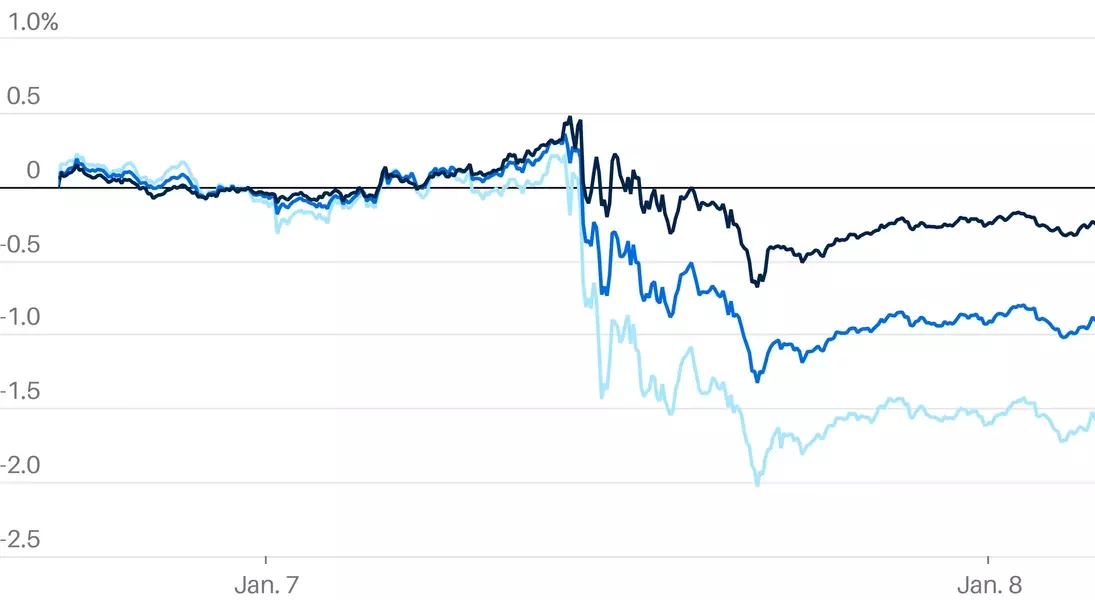
Early Wednesday, U.S. stock futures showed signs of recovery following a significant decline the previous day. The market's volatility is being driven by concerns over potential Federal Reserve actions and remarks from President-elect Donald Trump. Investors are now cautious about the direction of interest rates and the impact of geopolitical tensions on the economy. Recent economic indicators suggest that growth remains robust, but the prospect of reduced rate cuts in 2025 has dampened investor optimism. Additionally, Trump's renewed focus on tariffs, particularly his comments about Denmark and Greenland, adds another layer of uncertainty to an already jittery market.
Economic Indicators Signal Strength Despite Rate Cut Concerns
The resilience of the U.S. economy was highlighted by recent data showing continued hiring and price-raising capabilities within firms. This strength bodes well for corporate earnings. However, traders are becoming increasingly wary of the Federal Reserve's next move. After reducing interest rates by a full percentage point at the end of the previous year, expectations for further cuts in 2025 have diminished. This shift in sentiment has led to a more pessimistic outlook for stocks, as lower interest rates typically support higher equity valuations.
In detail, the labor market and services sector reports released on Tuesday indicated that economic expansion continues unabated. Companies remain eager to expand their workforce, signaling confidence in future demand. Moreover, businesses appear to have the flexibility to increase prices without fear of losing customers. Yet, with fewer anticipated rate cuts, investors are bracing for a period where monetary policy may not provide the same level of support to the markets. This adjustment in expectations could lead to increased market volatility as investors recalibrate their strategies.
Geopolitical Uncertainty Adds to Market Volatility
Adding to the market's unease, President-elect Trump's recent comments on tariffs have introduced a new element of unpredictability. His statement regarding potential penalties on Denmark if it does not cede sovereignty over Greenland has raised concerns about escalating trade tensions. Tariffs on imports could exacerbate inflationary pressures, which would be detrimental to both consumers and businesses. The combination of these factors has created an environment of heightened uncertainty, leading to increased market fluctuations.
Trump's rhetoric on international trade policies, especially when tied to geopolitical ambitions like Greenland, underscores the broader challenges facing global markets. Tariffs can lead to higher costs for imported goods, which in turn can drive up consumer prices. This inflationary effect could force central banks to adopt tighter monetary policies, potentially stifling economic growth. Furthermore, the geopolitical ramifications of such statements add to the complexity of the global economic landscape. While the immediate economic data remains positive, the long-term implications of these developments could weigh heavily on investor sentiment and market stability.
